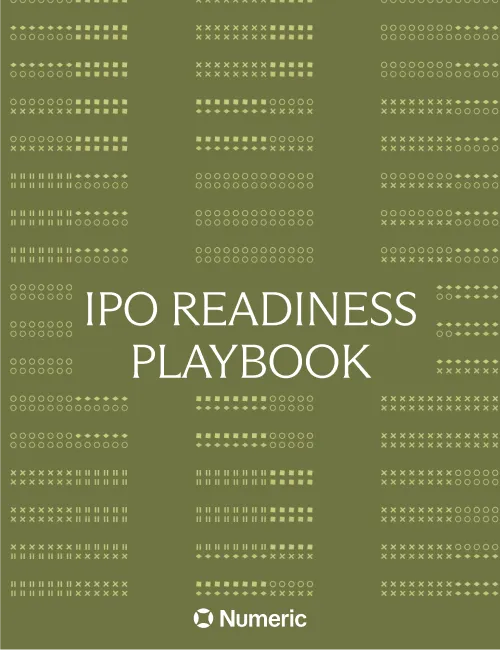NetSuite vs QuickBooks: Which Is Best for Your Business?
.webp)
High-growth periods at a company can be very exciting while also putting real stress on the workflows, business processes, and teams already in place. For the accounting team, that usually manifests in excessive amounts of manual work, a lack of visibility across processes and data, and potential delays in reporting.
In most cases, these issues signal that a business has outgrown the existing accounting and financial management software; if so it’s time to switch to a new software solution to reverse these problems and get back on track to sustainable growth.
Oracle NetSuite and Intuit QuickBooks are two legacy incumbent ERP solutions that offer some of the most popular and widely used automation systems for finance teams of all sizes. Their combined offerings including NetSuite ERP, QuickBooks Online, and QuickBooks Enterprise.
In this guide, we compare these three accounting software products to help your team select the tool that will best fit your company’s present and future business needs. To help businesses make the right decision, we’ll look at the key features of each platform and what types of accounting functions they serve best. We’ll also provide a checklist of the main factors to take into consideration when deciding on the right product. Finally, we’ll show you how additional solutions like Numeric can support your team regardless of which ERP you ultimately select.
To learn how Numeric can add structure, speed, and visibility to any accounting stack, regardless of which platform you choose, schedule a personalized demo.
QuickBooks and NetSuite in Context
As accounting automation software platforms, both NetSuite and QuickBooks help financial teams keep processes organized, data visible and readily available, and work optimized. However, the three main products offered by these industry leaders come with important differences and specifications that make them the right fit for varying business operations.

For starters, QuickBooks Online is a cloud-based accounting software rather than a comprehensive enterprise resource planning (ERP) system. As such, it helps you keep track of business income and expenses and organize your financial information without the need for manual entries, in a simple, user-friendly manner.
QuickBooks Online’s capabilities make it a potentially good choice for small businesses with basic accounting needs that are prioritizing ease of use and affordability. Typical customers include service-based businesses and self-employed business owners in fields like consulting, marketing, legal, and others.
The main strengths of QuickBooks Online include:
- Easy automation of financial processes
- Good integrations with third-party tools
- Straightforward implementation and setup
- Affordable pricing
Meanwhile, some limitations to keep in mind are:
- Few financial management functionalities
- Restricted customization options
- Limited balance sheet reconciliation capacity, especially for tasks like bank reconciliation in NetSuite (Numeric can help)
- Lack of scalability

Next, QuickBooks Enterprise operates as an on-premise ERP system that builds on the functionalities provided by QuickBooks Online to provide an enterprise accounting and business management solution. The platform brings numerous business management processes - such as accounting, inventory management, reporting, and others - under a single roof and puts them on autopilot.
All in all, QuickBooks Enterprise could generally be the right fit for mid-sized businesses with advanced accounting requirements. It is particularly popular among companies working in the construction, manufacturing, retail, and wholesale industries.
Some benefits of QuickBooks Enterprise to take into account include:
- Advanced accounting and bookkeeping functionalities
- Enhanced reporting
- Better customization than QuickBooks Online but more limited than NetSuite
- Tiered pricing structure to pay only for the features you need
At the same time, a few drawbacks to be aware of are:
- No cloud data capabilities
- Restricted financial and business management capacities (compared to NetSuite)
- Some integrations needing data entry
- Limited scalability (compared to NetSuite)

Finally, NetSuite ERP is a cloud-based, end-to-end ERP platform that allows businesses to organize and control all their business management processes from a single place. In addition to accounting and bookkeeping functions, it also supports revenue recognition, financial planning, and advanced analysis.
The modules offered by NetSuite best serve large enterprises with complicated accounting and business management needs that can afford to hire a dedicated admin, usually in the form of third-party consultant help. Businesses that commonly use the system operate in software, financial services, professional services, manufacturing, and wholesale distribution.
The most considerable strengths of NetSuite ERP include:
- Comprehensive features aligned with the needs of large-scale businesses
- Advanced automation capabilities
- Strong customization options, with hundreds of third-party integrations
- Able to handle advanced inventory workflows in ways QuickBooks cannot
- Has an entire marketplace of add-ons and external vendors
- Superior scalability
Having said that, some restrictions to account for are:
- Challenging adoption that requires having a full-time team to implement
- Complicated customization that can’t be easily reversed
- Steeper learning curve than alternatives
- High cost for access to all features and multiple team members
In addition to these primary differences between the platforms, it’s important to have a look at an in-depth comparison of the features of each of these products before selecting the right fit for your team.
NetSuite vs QuickBooks: Platform Feature Comparison
To help you make the right choice for your specific requirements, let’s take a look at a side-by-side comparison of the NetSuite and QuickBooks products:
The most important QuickBooks Online features that many SMBs love cover:
- Accounting and bookkeeping capabilities
- Pre-built, basic financial reports with limited customizations
- Simple invoicing and expense tracking
- Lack of multi-entity support and true audit trail and real-time visibility
Meanwhile, the more QuickBooks Enterprise offers the following features:
- Customizable reports and templates
- Project-based billing
- More frequent dashboard refreshes for nearly real-time visibility
- Manual multi-entity functionalities
- Manual revenue recognition
NetSuite provides the most advanced features encompassing:
- Automated revenue recognition with full compliance
- Built-in multi-entity consolidation
- Highly customizable dashboards, KPIs, and reports
- Robust audit trail and internal controls
- Real-time visibility
Based on your decision criteria, the features above will help to drive your final decision as to which product to add to your accounting tech stack.
Numeric: the #1 AI accounting tool in 2026
Which Accounting Platform Supports Long-Term Scale?
QuickBooks Online can help a business with limited financial and human resources get started and take off, but this is not a sustainable solution for fast-growing enterprises that plan to expand exponentially.
QuickBooks Enterprise, on the other hand, supports scalability up to a certain point which makes it a good option for growing businesses which still don’t have overly complicated financial management needs and ample resources to allocate to ERP software.
Among these three products, the one that truly supports long-term scale is NetSuite ERP. It offers enterprise-grade features and functionalities that can help even the largest companies streamline and automate processes. However, Netsuite pricing can be prohibitively expensive and it tends to bring additional costs as you add in features.
From Complexity to Clarity: Making the Right Choice
In addition to providing access to the necessary tools and features, choosing the best financial management platform should also align the right technology with your team’s structure, operational pain points, and growth aspirations.
Thus, when making the decision between NetSuite vs QuickBooks, businesses should consider the following factors:
- Business Size and Development Stage: Smaller, nascent businesses can start with QuickBooks and move to NetSuite as they grow and their operations get more complex.
- Accounting Team Size and Structure: Opting for NetSuite’s ERP requires a well-structured accounting team that has the capacity to properly set up and use the platform. Meanwhile, QuickBooks is more of a “plug-and-play” option that can be used by less advanced teams.
- Recurring Month-End Close Pain Points: Companies with complex close procedures that require excessive human resources should consider NetSuite which has advanced financial close software features. Businesses that don’t mind handling some parts of the process manually can choose QuickBooks.
- Need for Compliance, Audit Readiness, and Reporting: Enterprises that work across multiple regions, multiple currencies and also need to meet varying compliance standards should definitely opt in for NetSuite. On the other hand, those that require some support in getting audit-ready and reporting can stick to QuickBooks.
- Readiness for Change and Implementation Capacity: QuickBooks Online and QuickBooks Enterprise come along with little disruption and easy implementation to support small and growing teams. Because of the more comprehensive features, NetSuite ERP demands greater investment in change management and team training.
- Budget: QuickBooks Online is the most affordable option, while NetSuite ERP is the most pricey platform, with a higher NetSuite implementation cost and a generally expensive recurring subscription.
To be able to make the right choice, it’s recommended to develop some criteria that evaluates the needs of your team and guides the decision-making process. This framework should take into consideration the team size and composition, the major pain points, the reporting and compliance requirements, the priority features, and the preparedness for change.
Businesses with basic structure and needs should look into QuickBooks Online; those that exhibit moderate complexity can check out QuickBooks Enterprise; and those with high complexity and ambitious growth plans can get started on NetSuite ERP.
How Numeric Supports Accounting Teams Using NetSuite or QuickBooks
No matter which platform you choose to streamline your financial operations, Numeric can support your accounting team to add speed, structure, visibility, and efficiency. But how exactly is this done for each product?
Numeric integrates seamlessly with QuickBooks Online, providing these key features to enhance the close process:
- Automated Reconciliations: With Numeric, you can handle all your month-end balance sheet reconciliations in one spot. The system automatically pulls account totals from workpapers and your GL's trial balance.
- Full Close Visibility: Stay updated on close happenings with dedicated notifications, comment functionality, and Slack updates, ensuring a smooth flow of communication. To boost productivity, establish dependencies that lock certain tasks from being started until a preceding one is finished.
- Easy Close Organization + Audit Readiness: Numeric makes it easy to assign tasks to preparers and reviewers, and keeps track of all comments, changes, and submissions in a clear month-end close checklist. When audit time rolls around, auditors can log straight into Numeric and see a complete activity trail, no need for your team to spend hours resurfacing required documentation.
Numeric does not currently integrate with Quickbooks Enterprise.
Given the tool’s lack of cloud capabilities, Numeric is unable to integrate with QuickBooks Enterprise offering. Users looking to take advantage of Numeric’s other integrations should consider moving either to NetSuite or Quickbooks Online.
Numeric’s deep integration with NetSuite is its most powerful of all its ERP integrations. Here’s why:
- Ongoing Transaction Monitoring: With Monitors, you can flexibly set-up ongoing alerts to catch errors ahead of month-end account reconciliations. Catch any transactions tied to particular customers or, for Controllers doing a quality check of the full month-end process, surface all journal entries booked to A/R to scan through.
- First-pass Flux Analysis: Easily compare accounts MoM or QoQ to spot anomalies or layer in insights with auto-generated flux reporting. With Numeric, AI takes the first pass at writing variance explanations by combing through all transaction-details in an account and identifying key drivers of change.
- Advanced Search & Pivoting: Conduct a high-powered search for every transaction in your GL complemented by diverse filters for quick data access and pivoting directly in the tool.
- High-Level Reporting: Numeric’s ability to bring in transaction-line detail straight from your NetSuite instance helps to power its robust reporting tools. Create management reports that are customized to your business case in half the time it takes to spin up a Saved Search in NetSuite.
- Automated Reconciliations: With Numeric, you can handle all your month-end balance sheet recs in one spot. The system automatically pulls account totals from workpapers and your GL's trial balance.
- Full Close Visibility: Stay updated on close happenings with dedicated notifications, comment functionality, and Slack updates, ensuring a smooth flow of communication. To boost productivity, establish dependencies that lock certain tasks from being started until a preceding one is finished.
- Easy Close Organization + Audit Readiness: Numeric makes it easy to assign tasks to preparers and reviewers, and keeps track of all comments, changes, and submissions in a clear month-end close checklist. When audit time rolls around, auditors can log straight into Numeric and see a complete activity trail, no need for your team to spend hours resurfacing required documentation.
Bottom Line
A detailed comparison between NetSuite vs QuickBooks shows that there isn’t one product that’s simply better than the other. Instead, it’s all about choosing the platform that better fits your team’s current needs and future growth path.
While QuickBooks Online offers an efficient solution for small businesses with basic requirements, QuickBooks Enterprise is generally more appropriate for growing teams with expanding requirements. NetSuite ERP, on the other hand, is able to handle the demands of large enterprises with complex operations but requires a dedicated admin.
In all cases, no matter which accounting system you opt for, Numeric can help your team speed up the close process, improve collaboration between team members, and reduce risk.
Curious how your team can close faster without switching systems? Learn how Numeric brings structure, speed, and visibility to any accounting stack via a personalized demo.
FAQs
What’s the Difference between QuickBooks Online and Enterprise?
QuickBooks Online is a simple, cloud-based accounting solution that helps startups and small businesses streamline accounting and bookkeeping tasks. Meanwhile, QuickBooks Enterprise is a more advanced, desktop-based financial management product that supports growing and medium-sized businessescompanies that need to handle more complex workflows, inventory management, and more detailed reporting.
When Should an Accounting Team Move to NetSuite?
Accounting teams should move from QuickBooks to NetSuite when their business is meeting most of these 9 criteria:
- Expanding globally
- Managing complex inventory and supply chain
- Facing complicated revenue recognition
- Needing real-time reporting and forecasting
- Demanding high customization
- Requiring better ecosystem integration
- Growing their transaction volume
- Encountering industry signals
- Having adequate bandwidth to manage the transition
Can QuickBooks Support Multi-Entity Accounting?
No, QuickBooks does not adequately and efficiently support multi-entity accounting. In QuickBooks Online, each entity needs to be managed in a separate account, with no easy consolidation between the accounts. At the same time, QuickBooks Enterprises offers limited multi-entity support via multi-company files but lacks thorough intercompany consolidation.
How Does Numeric Integrate with NetSuite and QuickBooks?
Numeric integrates with QuickBooks Online and NetSuite ERP but not with QuickBooks Enterprise. Still, even with the latter, accounting teams can use Numeric to streamline their month-end close.
What Are Typical Implementation Timelines for NetSuite and QuickBooks?
QuickBooks Online is user-friendly enough to be implemented within a few days, while QuickBooks Enterprise usually requires a couple of weeks. Launching NetSuite ERP, meanwhile, takes between 3 and 6 months to complete setup, configuration, customization, training, and change management.
What if We’re Not Ready to Switch but Need More Visibility into Our Close Process?
If your team needs are outgrowing your current system but you’re not ready to switch to NetSuite, Numeric can help bridge the gap. The platform supplements your existing system to deliver structured close checklists, task ownership, built-in documentation, and real-time tracking. It’s an easy way to gain visibility, accountability, and control.





















.png)